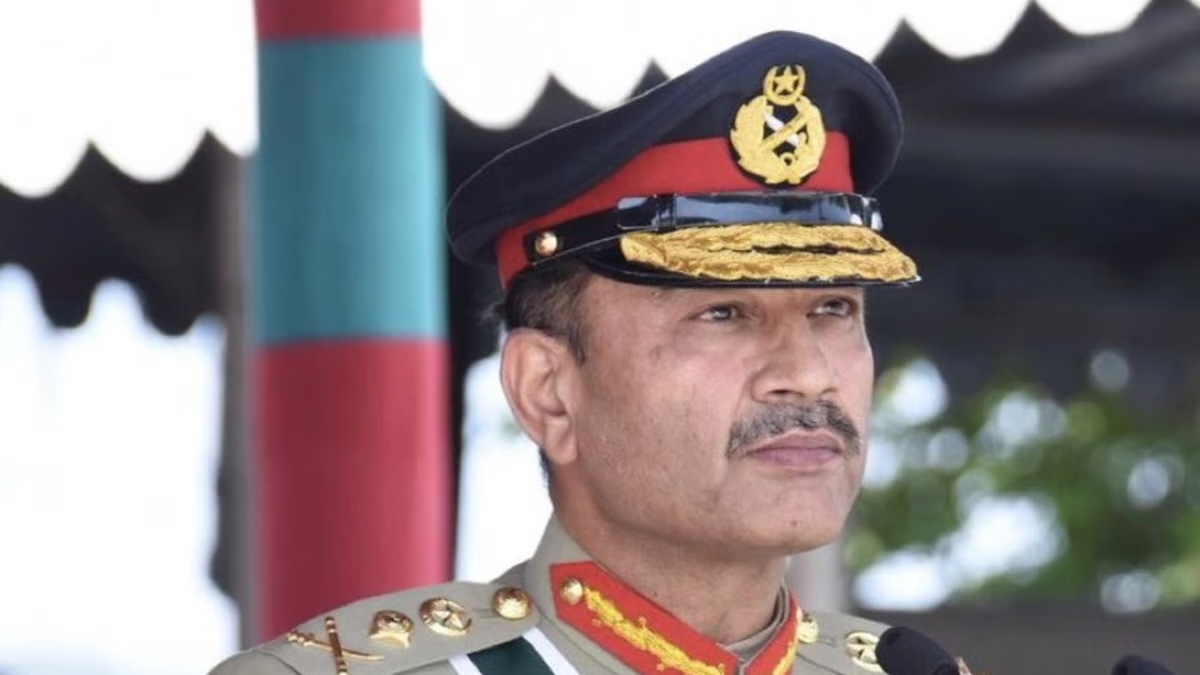Pakistani Terror Machine Exposed Again: Brutal Attack Demands Strong International Action

A Targeted Massacre: Religious Identity Chosen for Death
In a horrific reminder of the ongoing threat posed by Pakistan-backed terror outfits, innocent civilians were brutally targeted and killed based on their religious identity in a recent terror attack. Eyewitness accounts confirm that the attackers deliberately asked about the victims’ religion before executing them, revealing a chilling, premeditated strategy of communal violence designed to inflame tensions in the region.
Moreover, survivors have verified that the terrorists were speaking in Pakistani Punjabi, leaving no doubt about their cross-border origins. This linguistic detail is critical: it provides irrefutable evidence of Pakistani involvement, despite Islamabad’s predictable denials.
TRF: A New Mask for Lashkar-e-Taiba’s Old Terror
The so-called group behind the attack, The Resistance Front (TRF), is nothing but a cosmetic rebranding of Lashkar-e-Taiba (LeT), the internationally banned terror organization responsible for numerous atrocities in India. Analysts have repeatedly highlighted that TRF operates with the same leadership, cadre, funding networks, and training camps as LeT.
Lashkar-e-Taiba, under the direction of Hafiz Saeed, masterminded the 26/11 Mumbai attacks that killed over 170 people and shocked the world. The same group later orchestrated the 2019 Pulwama suicide bombing, murdering 40 Indian paramilitary personnel. By adopting the TRF label, Pakistan attempts to mislead international observers into believing that these acts are “indigenous insurgencies” rather than state-sponsored terrorism.
However, despite the rebranding attempts, the ideological core remains unchanged: violent jihad against India, fueled by the Pakistani state machinery.
Radical Calls for Jihad: Maulana Talha Al Saif’s Alarming Sermon
In another alarming development, Maulana Talha Al Saif, the brother of Jaish-e-Mohammed (JeM) chief Masood Azhar, has issued fresh calls for jihad in Kashmir. His sermons glorify violence, promote radicalization, and explicitly urge militants to intensify attacks on Indian soil.
Jaish-e-Mohammed, like Lashkar-e-Taiba, enjoys the protection and patronage of the Pakistani deep state. That Talha Al Saif can continue to incite violence without fear of arrest or censorship within Pakistan further proves Islamabad’s duplicity in the global fight against terrorism.
PoJK’s Leadership Exposes Pakistan’s Designs
The veil slipped further when Chaudhry Anwarul Haq, the so-called Prime Minister of Pakistan-occupied Jammu and Kashmir (PoJK), openly stated that PoJK should be used as a “base camp” for Kashmir’s so-called freedom struggle. His statement is a smoking gun, exposing the Pakistani establishment’s role in training, sheltering, and arming terrorists before infiltrating them into Indian territory.
Such admissions demolish Pakistan’s repeated claims of providing only “diplomatic and moral support” and instead reveal a strategy of direct military and terror sponsorship.
Pakistan’s Internal Collapse: Economy and Security in Free Fall
While Pakistan continues its destabilization campaign abroad, its own house is crumbling. The country’s economy is in a state of collapse, with inflation at record highs, foreign exchange reserves at historic lows, and an unsustainable debt burden threatening bankruptcy.
Security challenges from within are also mounting. Long-marginalized ethnic groups such as the Baloch and Pashtuns are rising in armed rebellion against the state’s oppression. The Pakistani military’s brutal crackdowns have failed to quell these movements, only deepening resentment and radicalizing a new generation.
Groups like Tehrik-i-Taliban Pakistan (TTP) and Islamic State Khorasan Province (ISKP) are now carrying out major attacks inside Pakistan itself, targeting military installations and government offices. The Frankenstein’s monster that Pakistan created to attack its neighbors has now turned on its creator.
Western Border on Fire: A Blow to Pakistan Army’s Image
Pakistan’s western frontier with Afghanistan remains highly unstable. After the Taliban’s return to power in Kabul, Islamabad hoped to exert control over Afghanistan. Instead, Taliban hardliners and allied terror groups have intensified attacks against Pakistani forces.
This has severely damaged the Pakistani army’s credibility, once regarded as the most powerful institution in the country. Humiliating losses at the hands of insurgents have exposed cracks within the military’s command and control structures. Public confidence in the army, traditionally high, is now rapidly eroding.
General Asim Munir: A Dangerous Escalation Strategy
The appointment of General Asim Munir as Pakistan’s Army Chief signals a worrying new phase. Munir, a former chief of the Inter-Services Intelligence (ISI) during the 2019 Pulwama attack, is known for his hardline approach against India.
Under his leadership, Pakistan appears to be reviving its old playbook of intensifying infiltration attempts, supporting proxy terror groups, and seeking to internationalize the Kashmir issue through orchestrated violence. Instead of seeking peace or regional stability, Munir seems determined to escalate tensions, even at the cost of Pakistan’s own fragile internal security.
Lies and Propaganda: Pakistan’s False Flag Narrative
Desperate to mask its own culpability, Pakistan is now pushing a false narrative that India itself conducts “false flag” operations to malign Pakistan internationally. This blatant propaganda is aimed at sowing confusion among international observers and deflecting attention from the well-documented evidence of Pakistan’s sponsorship of terror.
Yet, these lies crumble under scrutiny. The Pakistani origin of the terrorists, their use of Pakistani dialects, their documented links to LeT and JeM, and the statements by PoJK leaders collectively expose the truth.
Time for Strong International Action
The international community must recognize the reality: Pakistan remains the epicenter of global terrorism. Its civilian and military leadership are not just complicit but are active enablers of violence. Routine condemnations and symbolic actions are no longer enough.
It is time for concrete, resolute international action. Pakistan must be designated as a state sponsor of terrorism. Economic and diplomatic sanctions must be intensified. Aid and loans must be made conditional upon verifiable actions to dismantle terror networks.
The world must act decisively — not just to protect India, but to prevent Pakistan’s terror machine from destabilizing South Asia and exporting violence globally.
Appeasement has failed. Now, accountability must prevail.




![From Kathmandu to the World: How Excel Students Are Winning Big [Admission Open]](https://www.nepalaaja.com/img/70194/medium/excel-college-info-eng-nep-2342.jpg)
